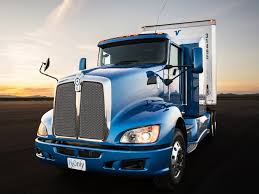
Breaking News
 Trump pardons Mets legend, 'Celebrity Apprentice' alum Darryl Strawberry over tax evasion co
Trump pardons Mets legend, 'Celebrity Apprentice' alum Darryl Strawberry over tax evasion co
 You WON'T BELIEVE How Much Money We're REALLY Sending To Israel!
You WON'T BELIEVE How Much Money We're REALLY Sending To Israel!
 China CANCELS U.S. Soybean Order?! Joel Salatin
China CANCELS U.S. Soybean Order?! Joel Salatin
 Ep 38 Jonathan Haidt: on The Anxious Generation: Childhood in Social Media Age & Fragile College ...
Ep 38 Jonathan Haidt: on The Anxious Generation: Childhood in Social Media Age & Fragile College ...
Top Tech News
 HUGE 32kWh LiFePO4 DIY Battery w/ 628Ah Cells! 90 Minute Build
HUGE 32kWh LiFePO4 DIY Battery w/ 628Ah Cells! 90 Minute Build
 What Has Bitcoin Become 17 Years After Satoshi Nakamoto Published The Whitepaper?
What Has Bitcoin Become 17 Years After Satoshi Nakamoto Published The Whitepaper?
 Japan just injected artificial blood into a human. No blood type needed. No refrigeration.
Japan just injected artificial blood into a human. No blood type needed. No refrigeration.
 The 6 Best LLM Tools To Run Models Locally
The 6 Best LLM Tools To Run Models Locally
 Testing My First Sodium-Ion Solar Battery
Testing My First Sodium-Ion Solar Battery
 A man once paralyzed from the waist down now stands on his own, not with machines or wires,...
A man once paralyzed from the waist down now stands on his own, not with machines or wires,...
 Review: Thumb-sized thermal camera turns your phone into a smart tool
Review: Thumb-sized thermal camera turns your phone into a smart tool
 Army To Bring Nuclear Microreactors To Its Bases By 2028
Army To Bring Nuclear Microreactors To Its Bases By 2028
 Nissan Says It's On Track For Solid-State Batteries That Double EV Range By 2028
Nissan Says It's On Track For Solid-State Batteries That Double EV Range By 2028
Toyota's Still Serious About Hydrogen--It Built a Semi to Prove It

For a while there, the hydrogen fuel cell was the darling of the transportation industry. It would provide the zero emission propulsion of a battery-powered car, the refueling time of a gas-powered car, producing nada but drinkable H20 as a byproduct. But there's a reason that, despite 50 years of work on fuel cells, the tech has never caught on. There's been no incentive to build hydrogen fueling infrastructure, so there's nowhere to top up your tank, and although hydrogen is the most abundant element in the universe, converting it to liquid fuel is energy intensive.
But Toyota isn't just holding onto hydrogen hope, it's expanding its efforts past passenger cars, to trucks. On Wednesday, it showed off Project Portal, a shiny blue 18-wheeler prototype powered by a pair of fuel cells. The Japanese automaker believes that by focusing on the right market, it can break the shackles that have restrained the fuel of the future.
UPS Has a Mother-Truck of a Delivery Drone Idea
"This is a proof of concept, and we really want to show that the powertrain works," says Toyota engineer, Tak Yokoo. "It should be capable for all truck operations."
Toyota engineers packed everything the Project Portal truck needs into a blue box the size of a garden shed, tucked between the cab and the trailer: two of the fuel cells you'll find in the Mirai passenger car, a small 12-kWh battery, and enough liquefied hydrogen to haul a laden 80,000-pound truck, 200 miles.
Remember that experiment you did in school science, using electrodes in water to split water into hydrogen and oxygen? The truck's fuel cells do the opposite, combining hydrogen from the tank with oxygen from the air, yielding H2O along with electricity that powers a motor good for 670 horsepower.

 Carbon based computers that run on iron
Carbon based computers that run on iron


